Here are the best Egypt travel tips to help you plan your trip!
I’ve never felt quite as mixed as a country as I have about Egypt.
On one hand, the history is every bit as fascinating as my endless studies at school promised, my mouth is literally watering when I’m thinking of the food, the marine life is vibrant despite the mass tourism and many people I met were incredibly welcoming, with locals even offering to share iftar (the meal after fasting during Ramadan) with us.
On the other, there were a couple of unsavoury incidents with local men who put a bitter taste in my mouth, we did feel scammed (to a big extent) quite a bit and parts of Cairo felt downright inhospitable.
I’ve put together many of my thoughts in my post “Is Egypt worth visiting”, because I think it’s a very nuanced question. But, if you have decided to visit, please see below for my Egypt travel tips!
Follow these Egypt travel tips for an easier trip
Here are all my Egyptian travel tips that I’ve put together to help make your trip easier!
If you’re landing in the daytime (especially in Cairo), consider an e-visa
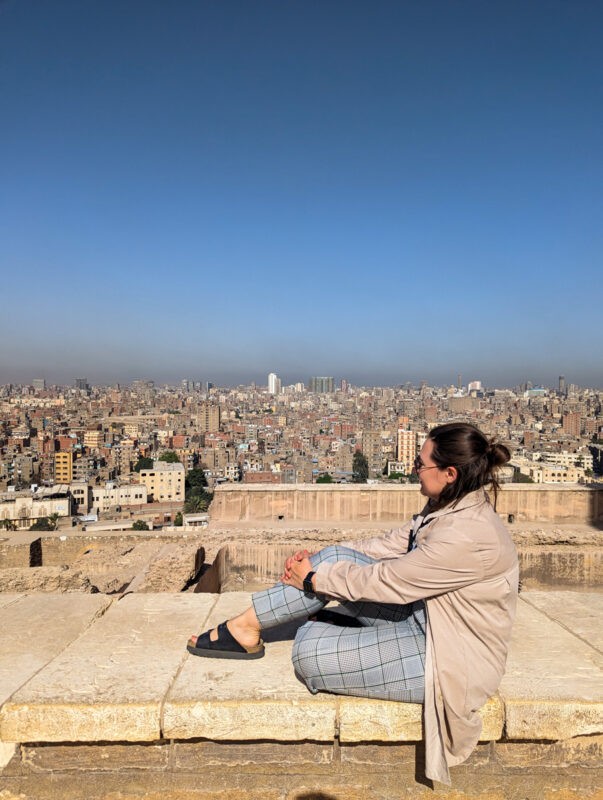
Entering Cairo International Airport can be a little overwhelming, especially if you’re landing in the daytime when it’s incredibly busy!
The same can happen in Hurghada.
You can get a “visa on arrival” when entering Egyptian Airports (more on that in a moment).
But there can be big queues to get this visa, so if you’re entering the airport at busy times, I’d recommend seeing if you can get an e-visa in advance.
You can get a visa from the official Egypt e-visa website.
If you’re landing in some resorts, you might not need a visa
If you’re going to Sharm el Sheikh, Dahab, Nuweiba and Taba resorts for up to 15 days and not leaving the area, you might not need a visa.
However, I’d recommend checking out up-to-date guidance for your nationality.
For example, if you’re British, take a look at the Gov.uk page for Egypt entry requirements.
If you buy a visa on arrival, pay in USD
If you’re planning on buying a visa on arrival (if you haven’t had time to sort an e-visa out), pay in USD.
When we landed in Hurghada, they quoted us £25 GBP or $25 USD for the visa. Obviously, the USD rate is much better!
You’ll need to tip
Tipping culture is always a hot topic of conversation anywhere in the world – and in Egypt, it’s very much ingrained.
You’ll need to tip – which is called Baksheesh in Egypt – for pretty much everything – to bathroom attendants, waiters and tour guides.
While I don’t love tipping culture, it’s very much seen as a faux pas if you don’t, and it’s some people’s only method of income.
So, do carry some small change to tip people.
If you stay in Giza, research your hotels carefully
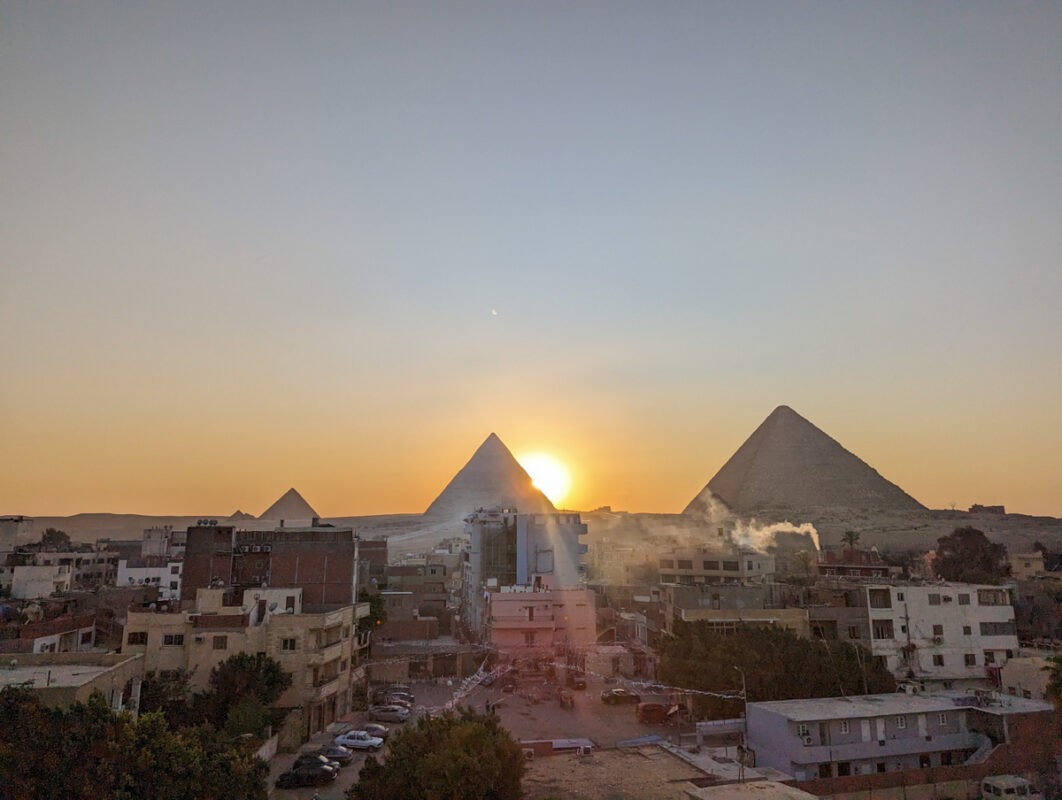
Staying in Giza can seem incredibly romantic and idyllic – but I’ll be honest, it was probably my least favourite place in Egypt.
The suburb has seen an explosion in tourism in recent years, with many unregulated guesthouses opening.
We stayed in one – it had a wonderful view of the pyramids, but when we arrived we were told that we were actually in a different hotel, which had a not-as-good view and no WiFi, so we insisted on being moved back to the hotel we’d booked. They eventually managed to find us a room at the original hotel.
I also had quite a difficult situation with the man working there.
My partner and I were on the rooftop, and he went downstairs to get something from our room. The man then came over to me and asked me about my partner and mine marital status, getting quite uncomfortably close to me.
I ended up telling him we were married and he then quizzed my partner further about our marital status…
Plus, every time I asked him about something in our room (we didn’t have any toilet paper, for example), he was very mansplainy; acting outraged about me asking for things!
So, we were ultimately staying at an unregistered hotel and unfortunately, the person who was working there had some rather dated attitudes.
Of course, some smaller guesthouses and homestays are fine, with nice, respectful people running them, but there’s not necessarily a way to know this before booking.
If we were staying in a more regulated hotel, the staff would likely have more customer service training and be much more professional.
Book some tours on Get Your Guide
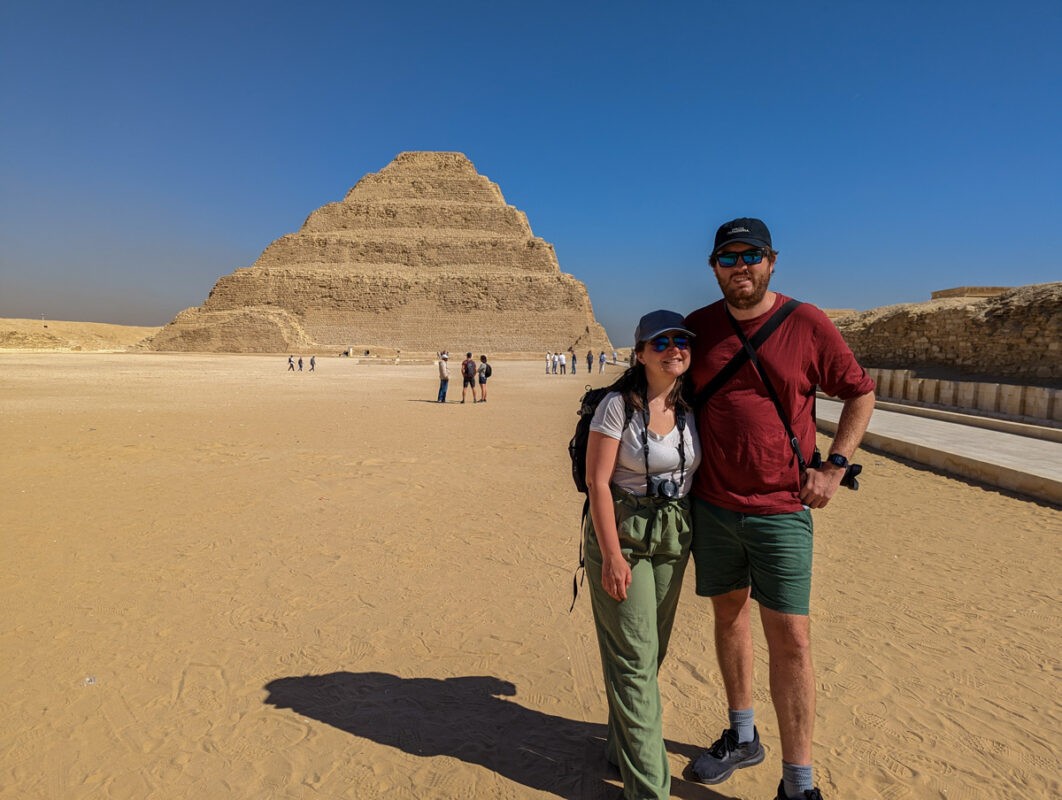
Get Your Guide is a fantastic resource for travellers across the world, but I found it especially useful in Egypt, where tour prices are often bumped up.
We booked a tour of the pyramids (more on that in a moment but you can take a look here) and a River Nile boat cruise when we were in Cairo; both of these tours were affordable and we were connected seamlessly with the company.
In fact, we much preferred booking this way than independently; we booked a tour of Coptic Cairo independently and weren’t happy with the customer service.
It was a full-day tour, costing $60 each, and we went to an area we could have taken an Uber to anyway, and it only lasted from 10am – 2pm.
See the pyramids with a guide!
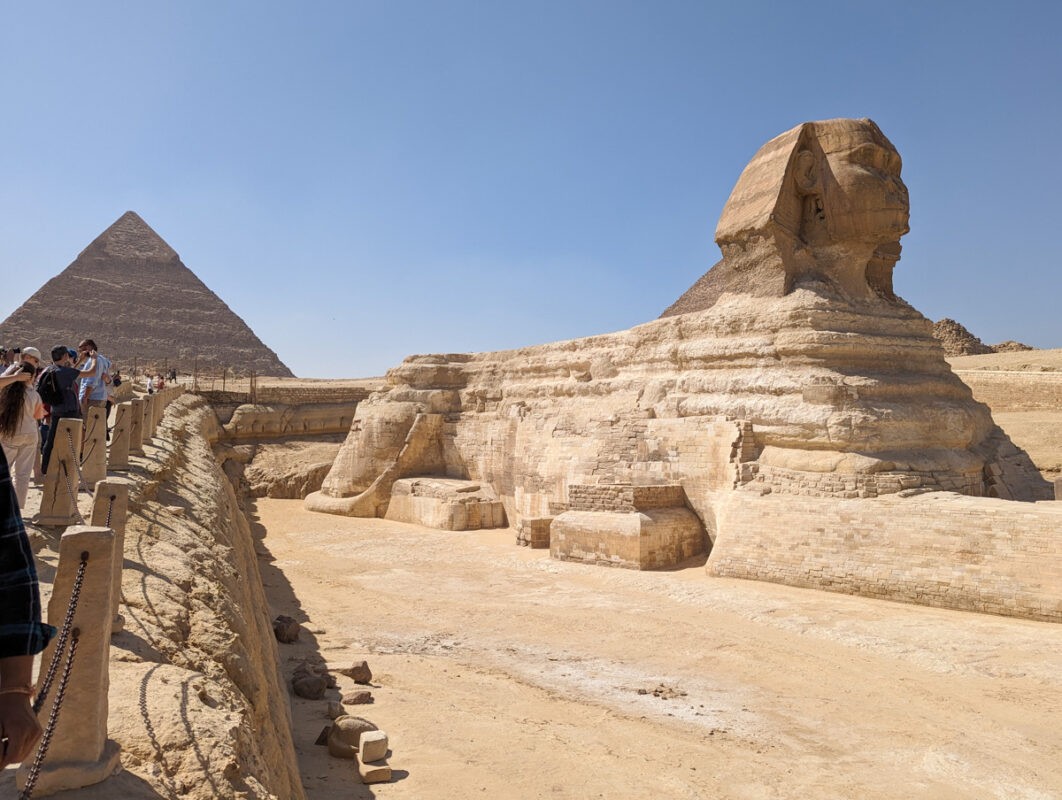
As mentioned, I highly recommend seeing the pyramids with a guide.
This is for a multitude of reasons:
- Ancient Egyptian history is fascinating, and you’ll learn much more about it if you’re with a guide as opposed to exploring on your own.
- You’ll see some of the lesser-visited areas like Saqqara and Memphis with your own transport. You can visit these independently, but you’ll need to navigate taxis or buses.
- You’ll need to tip quite a lot at the pyramids, but if you’re on a tour, the guide usually sorts all this out for you (or at least tells you when and how much to tip).
- People are much less likely to hassle you if you’re with a guide.
We did this private tour of the pyramids. The rate only included transport and the guide – we paid for entrance tickets and lunch – but we thought it was excellent value.
Try to avoid papyrus and scent shops (if you want to)
When you’re on a tour, it’s quite likely you’ll end up in a papyrus or Egyptian perfume shop.
You can ask for these stops to be skipped (if you’re on a private tour) but usually, guides are quite keen to get you inside because if you make a purchase, they get a commission.
We actually did purchase some Egyptian papyrus as presents (our niece loves the Ancient Egyptians and she was really excited to have a papyrus with her name in hieroglyphics) but at the perfume shop, we tried to make it quite clear that we weren’t looking to buy anything.
If you don’t want to make a purchase, don’t be afraid to say so and leave the shop!
You can’t drink the tap water
Definitely don’t drink the tap water in Egypt!
It’s not drinkable, and you can get quite ill by consuming it. I also didn’t brush my teeth with tap water.
We ate street food (it’s delicious!) but traveller’s diarrhoea is common
Now, while I did eat plenty of street food when I was in Egypt (I’m still dreaming about their fava bean falafel wraps…) be prepared to have a bit of traveller’s diarrhoea.
Of course, you can avoid this by not eating street food, but in my opinion, you’d be missing out by avoiding it!
Mitigate the worst traveller’s diarrhoea by making sure all food is cooked in front of you, being careful with meat and only eating salad from higher-end restaurants.
You’ll probably want to bring some immodium with you as well.
If you’re anywhere that’s not the beach, dress conservatively
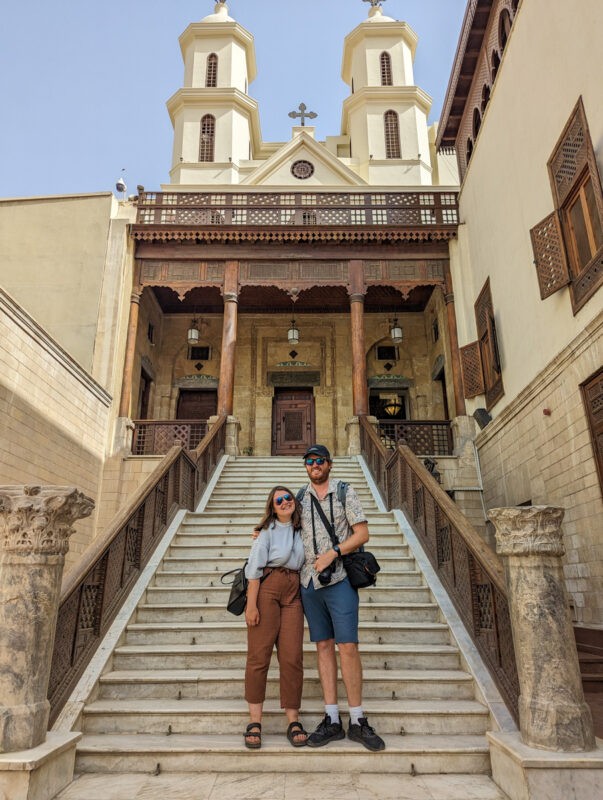
Egypt is a Muslim country, and the general dress code is conservative.
Plenty of women don’t cover their heads (whether they’re Muslim or Christian), but pretty much everyone covers up a little.
While parts of the country are very touristy and there isn’t a dress code, I still think it’s respectful to cover your legs and shoulders.
I generally wore T-shirts and long, floaty trousers.
Carry a headscarf around for visiting mosques
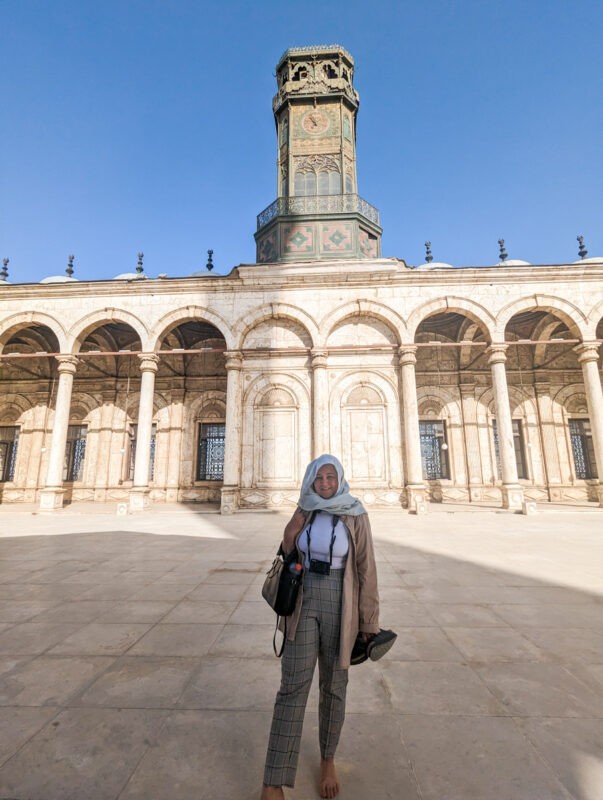
If you want to go into a mosque, bring a headscarf.
These will sometimes be rentable (or even free to borrow) at the entrance, but not always. Headscarves can be great for covering your arms as well!
Mosques should be free to enter
Speaking of mosques, we were told by a tour guide that none should have any entrance fees.
If somebody is asking you for money to enter a mosque, it’s a scam.
It’s a cash economy
We paid for very little on card while we were in Egypt, only big purchases like our block of diving lessons or some accommodation (although some were cash-only).
Make sure you have Egyptian pounds (there are ATMs at the airports and most places accept foreign cards) or USD or EUR to exchange. Some places will accept USD, but the rates will be higher – it’s always cheaper to pay in Egyptian pounds.
Don’t do anything that could cause people to ask for a fee
Be very careful with people offering you services or items; they’ll usually incur some cost.
This includes someone physically taking you somewhere if you ask for directions (in some cases, people might even ask for a tip for giving directions!), taking photos of something or someone and any kind of “gift”.
I hate to have to act so hostile, as I usually love chatting with locals when I travel, and many people in Egypt want to help tourists with nothing expected in return. However, unfortunately – largely due to its mass tourism, I think – some people will always expect a bit of baksheesh for offering anything.
Of course, if someone has been genuinely helpful, I would give some baksheesh, depending on the situation. For example, once somebody helped us go to the front of a massive tour group when entering the Cairo Citadel, and we were happy to give him a tip for doing so.
Don’t ride camels at the pyramids
In a similar vein, don’t ride the camels at the pyramids of Giza.
This is a well-known scam in the country. You’ll decide on a price and then head out on the camels to see views of the pyramids.
It’s beautiful – but when you reach the furthest point of the journey, the guide will ask you for more money than agreed and say that the agreed price was the minimum, and for whatever reason, you need to pay more.
I’ve heard of countless people getting stung this way!
Check out my post about Cairo safety for more information about scams in the city.
Don’t visit in the summer
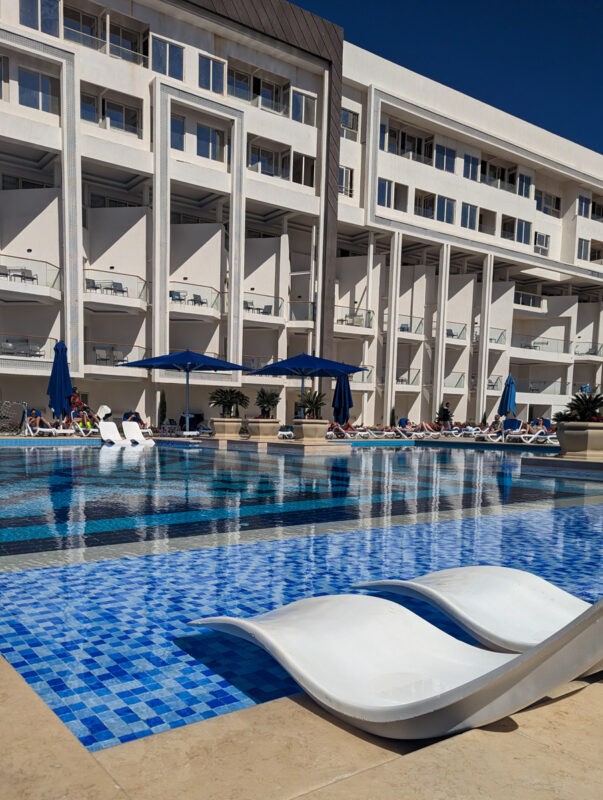
I’d recommend visiting Egypt in the shoulder season; we went in April and the weather was perfect.
Summertime is scalding hot, particularly in the desert, and it’ll affect how much you enjoy your trip!
Use Uber in Cairo
Uber works fantastically in Cairo. It’s regulated, so you’ll pay the same amount each time (many rides were under $1) and they arrive quickly. It’s so much easier than bargaining!
Learn a bit of Arabic if you can
Arabic is the main language in Egypt, and while many locals do speak English, it never hurts to at least know hello (mrhban) and thankyou (shukran) in the local tongue.
I’ve always found that with a few words of the local language, people are more likely to want to chat with me and help me if I ever need it!
Bargain in markets
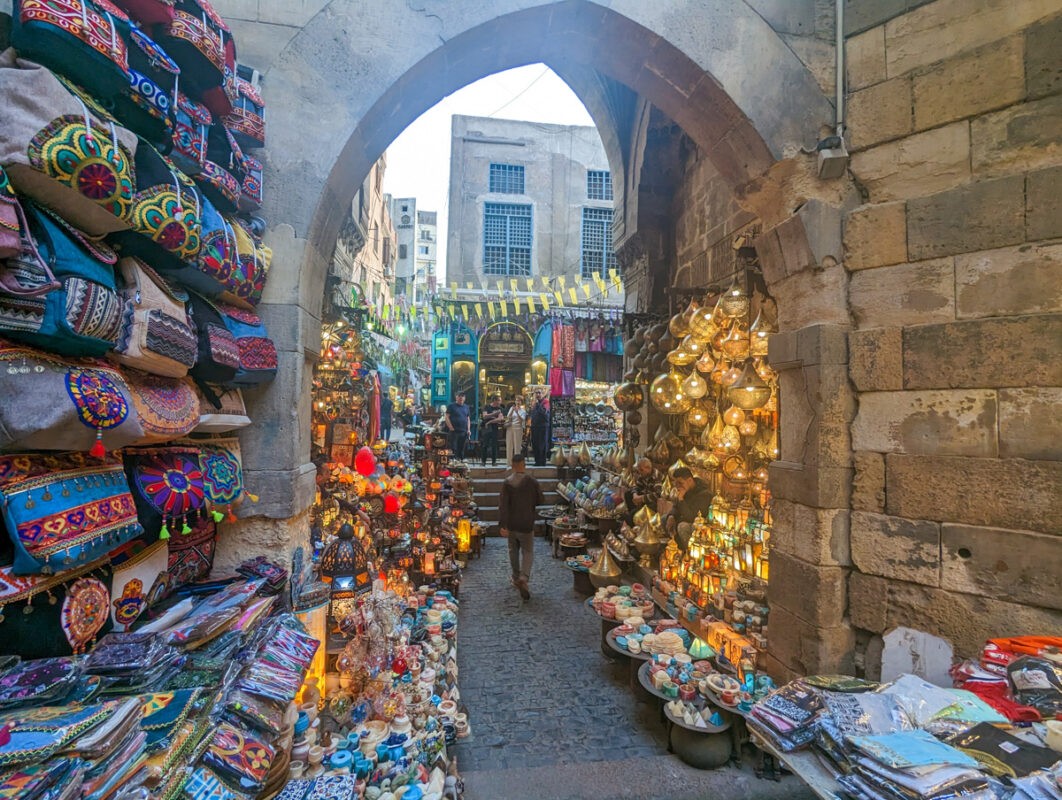
Egypt certainly has a haggling culture, and if you’re visiting anywhere like the Khan-el-Khanali market or even in many tourist-focused shops, bargaining is a way of life.
However, I’d advise you to not try to bargain too hard – a dollar might not make a huge difference to you but it could to market sellers!
Wear a Mo Salah football shirt (if you’re so inclined)
Ok, this is a rather offbeat tip, but trust me, it works!
My partner collects football shirts when he travels and he bought a Mo Salah Egypt shirt when we were in the country.
When he was wearing it, he got tonnes of compliments from locals, people were exceptionally helpful and we even got fast-track entry a couple of times!
It’s all part of appreciating local culture – having something that people could resonate with meant that we were able to strike up many more conversations and get some great local insights.
Purchase a local SIM card (cheap at airports)
Definitely purchase a local SIM card when you’re in Egypt.
The WiFi isn’t always great, and a SIM will make it easy to use Uber and look up information on the go.
I bought a SIM from Cairo Airport for only four euros with lots of data. You could also get an Airalo e-sim, although these will be more pricey.
Book airport transfers (also good value)
For a smooth start to your trip, consider pre-booking airport transfers.
These are available on Get Your Guide (here’s the one we used), and means that you’ll avoid paying for inflated airport taxis or working out public transport.
They’re inexpensive and both times when we ordered them, our driver was waiting for us when we arrived.
Have full travel insurance
Travel insurance is an essential safeguard for any trip, especially when exploring somewhere like Egypt.
Opt for comprehensive coverage that includes medical emergencies, trip cancellations, lost baggage and other unforeseen circumstances.
I always use Safetywing travel insurance, they’re ideal for digital nomads but inexpensive for other travellers too!
Don’t PDA
Egypt’s conservative culture advises against PDA public displays of affection.
To respect local customs and avoid drawing unwanted attention, I’d recommend keeping expressions of affection private.
Dive with Diving Star in Hurghada
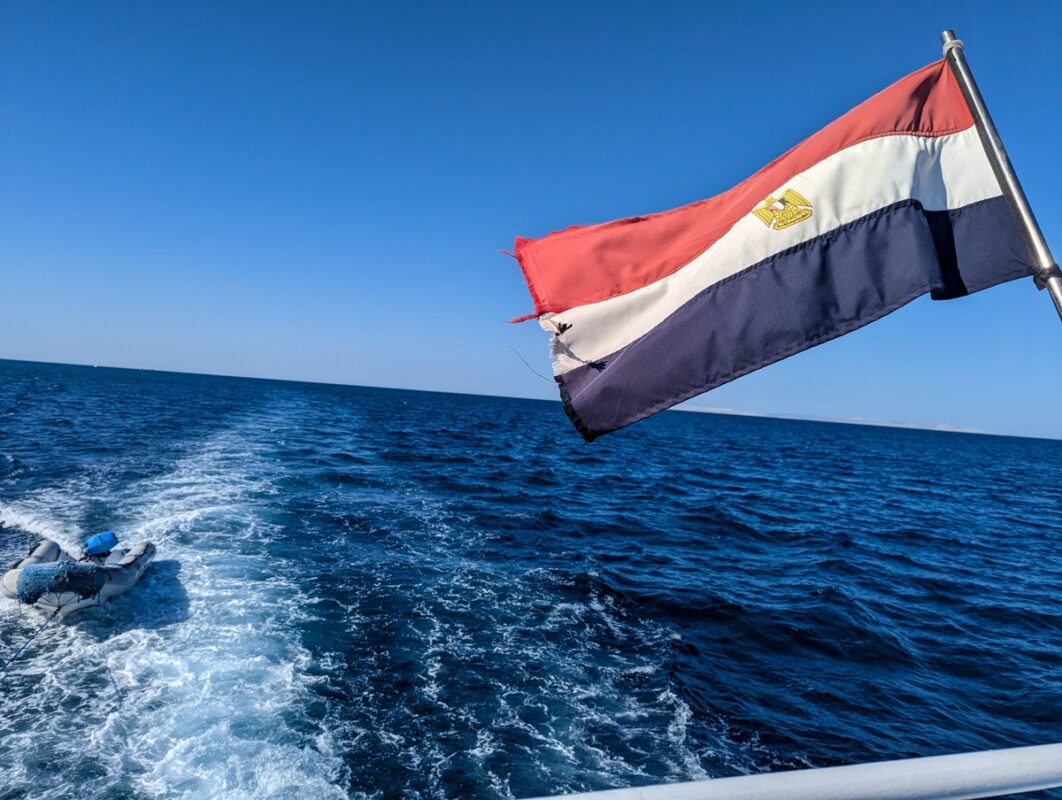
This is a rather specific Egypt travel tip, but dive with Diving Star when you’re in Hurghada!
It’s probably the best dive school I’ve ever used; their professionalism, friendliness and reliability were second to none.
Their instructors were experienced and the equipment well-maintained, and we had the best week visiting different dive sites around the Egyptian Red Sea!
If you’re solo travelling, stay at larger hotels or do a tour
This leads back to my original travel tip about choosing your Giza hotel wisely. If you’re solo travelling, stay at larger, more professional hotels.
I’d also recommend maybe considering doing a tour if you’re a solo female traveller. I’ve travelled solo a lot, all over the world, and I’m not sure that I’d visit Egypt solo; if I did, I’d definitely consider a tour.
Follow these things to know before visiting Egypt!
There’s plenty that I love about Egypt, but there are a lot of things to bear in mind before planning a trip here. Follow my tips for a hassle-free trip!
